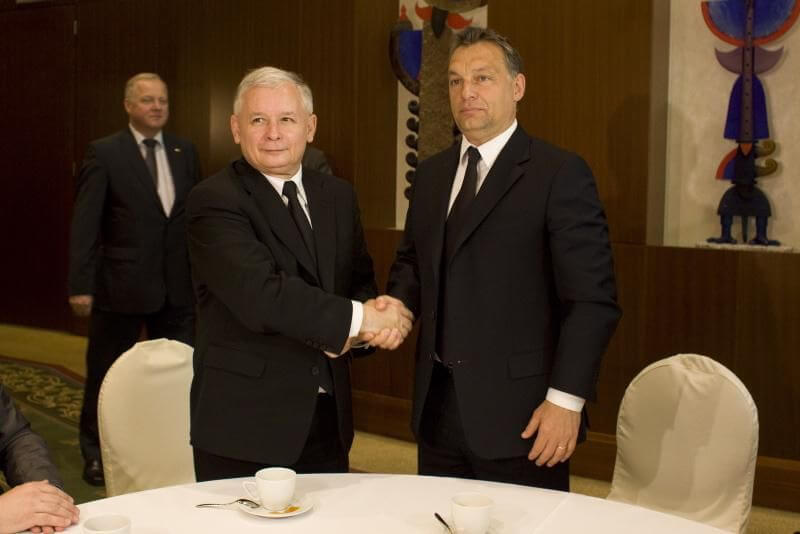This Tuesday the European Parliament held yet another debate on the political situation in Poland. During the discussion, the Law and Justice MEP Ryszard Legutko proclaimed that other MEPs in the room are “driven by a deeply rooted prejudice against the Polish government and everything that it represents” and that “the truth is that they are organically unable to accept the fact that there are political parties and governments with different views”.
Of course, Legutko is right.
Many European politicians are “organically unable” to get that there can be a government in Europe which tries to impose its will on every aspect of political life and which wants to have absolute power, including power to influence the judiciary system, which is traditionally separated from the executive branch.
The quarrel over the Constitutional Court continues and many people are probably organically exhausted by the need to repeat that the Court’s verdicts must be published.
But what is inconceivable for Franz Timmermans is perfectly conceivable for Norbert Hofer, the populist right-wing presidential candidate in Austria. Recently, Hofer met in Prague with the Czech president Miloš Zeman and announced his brilliant plan. Austria should join the Visegrad Group. What is needed is a Union within a Union. Only the name will be changed from V4 to a High fiVe.
A couple days ago it seemed that the Visegrad Group is in crisis and that racial prejudice, nationalism, and the lack of solidarity with refugees are not enough to serve as a unifying platform for Poles, Czechs, Slovaks, and Hungarians. Well, not anymore.
Last week the Economic Forum in Krynica ended – an event where businessmen and politicians can give each other high fives and where last year Jarosław Kaczyński was awarded the person of the year title – a prize which this year went to Viktor Orban. The latter said in Krynica that “there is a saying in Hungarian that if you find someone trustworthy, you can steal horses with them (…) I wouldn’t hesitate to go and steal some horses with the Poles”. Kaczyński was eager to suggest where they can do that: “We can steal horses, we have a stable called the European Union”. Politicians shared also other ideas about carrying out a “Cultural Counter-Revolution” in Europe, and about changing European treaties and going back to nation states.
Polish media reported that the Czechs were not pleased. According to one report, a high ranking Czech diplomat said that “in the face of the Polish-Hungarian alliance, we are trying to limit our involvement in the Visegrad Group”.In short: go steal these horses on your own.
The Visegrad Four had its reunion in the wake of the refugee crisis. Its members solidarily proclaimed no interest in showing solidarity with the refugees and refused to comply with the EU refugee quotas.
Perhaps the Czechs are a little bit hesitant about stealing horses with Kaczyński and Orban, but if Austria wants to join the Visegrad Group, it might convince them to stay in it.
Unfortunately, this would be bad news for Europe.
The European Union is already in trouble and may be “organically unable” to squabble with the four Horsemen of the Apocalypse from Visegrad, which the fifth Horseman is now eager to join.
![Political Critique [DISCONTINUED]](https://politicalcritique.org/wp-content/uploads/2015/09/Political-Critique-LOGO.png)
![Political Critique [DISCONTINUED]](https://politicalcritique.org/wp-content/uploads/2015/09/Political-Critique-LOGO-2.png)
